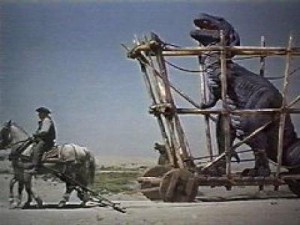by Debbie Burke

Cover by Brian Hoffman
Whew!
I just typed “The End” on the draft of Fruit of the Poisonous Tree, the ninth book in my Tawny Lindholm Thriller series.
But “The End” doesn’t mean THE END. Far from it.
Now the fun begins.
Print out the manuscript.
Pro Tip: print the hard copy in a different font than the one used onscreen. Errors and typos pop out more visibly.
Grab the red pen and let it bleed all over the pages. Look for inconsistencies, plot holes, chronology problems, dangling subplots, name or description changes (blue eyes to brown, blond hair to auburn), etc.
Oops. I changed one character’s name from “Fram” to “Framson” and hit “replace all.” But I forgot to put a space on either side of the name. Therefore, every time the letters “fram” appeared, it was changed to “Framson.” The same petite frame now read The same petite Framson.
Once you transfer corrections from the hard copy into the digital copy, it’s time to send to beta readers. Their fresh eyes are invaluable because the author is too close to the story and can’t judge it objectively.
How can you help beta readers help you?
- Choose beta readers carefully.
They don’t necessarily need to be other writers, but they do need to be avid readers. Their function is to assess your book as if they plucked it off the bookstore shelf.
Find people who read in your genre. You probably shouldn’t choose a fan of blood-and-guts action thrillers to beta read a picture book for young readers.
But don’t eliminate a possible beta simply because they don’t often read your genre. A viewpoint from a different perspective frequently gives additional dimension your story wouldn’t otherwise have.
- Find people you can depend on to read in a timely manner. If you have a deadline, let them know it.
- Find appropriate experts.
Do your books have legal, medical, law enforcement, professional, technical, and/or historical elements?
Are you writing about a society, nationality, culture, ethnicity, religion, or other group that you’re not familiar with?
If so, ask for an expert’s help to make your depictions authentic.
Experts are often busy professionals in their field and may not have time to read the entire book. You can send them select passages that you’d like them to review.
For instance, in Deep Fake Double Down, I wanted short, understandable descriptions about how to create and detect deep fakes, but not too many details to bog the story down. I sent several short excerpts to the expert (say that three times fast). He made suggestions and corrected out-of-date information. The review only took him an hour (including our phone conversation) and my story had accurate details.
- Ask specific questions.
Do character actions seem plausible and realistic?
Is the plot interesting? Can you follow it?
Does the writing flow smoothly?
Were you confused? Please note where.
Did you lose interest in places? Please note where.
Are there dangling threads that need to be wrapped up?
Please note anything that bothered you.
If you are concerned about particular issues, let betas know so they’re on the lookout.
5. Series writers need to consider additional factors when asking for feedback from beta readers.
Are your books a series? Or are they serials?
Generally, a series (Sherlock Holmes, Sue Grafton’s Alphabet Series) features continuing characters in a common location, during a similar time frame, often with consistent themes. Each book stands alone with a self-contained plot arc of beginning, middle, end. A reader does not necessarily have to read the books in order.
PublishDrive.com defines serials as:
“…literary works published in sequential installments rather than as complete, standalone books. A serial is a continuing narrative that must be read in the proper sequence to understand the plot.”
Serial examples are The Hunger Games trilogy, Harry Potter (seven books), and Breaking Bad on TV.
Serials can be:
Duology (2 books)
Trilogy (3)
Tetralogy (4)
Pentalogy (5)
Hexology (6)
Heptology (7)
Octology (8)
Ennealogy (9)
Decology (10)
For this post, I only talk about series, not serials.
Generally, readers prefer to read series books in order even though that’s not necessary.
With each book, series writers need to establish the ongoing characters and their relationships to each other, the world where the story takes place, and the time frame.
My Tawny Lindholm Thriller series features investigator Tawny Lindholm and attorney Tillman Rosenbaum. All books (except one) take place in Montana. A common theme is justice will be done (although not necessarily in the courtroom!). Each is written as a standalone.
In the first book, Instrument of the Devil, Tawny is a 50-year-old recent widow who unwittingly becomes entangled in a terrorist plot to destroy the electric grid. Tillman is the attorney who keeps her from going to prison, then hires her to be his investigator.
Although their relationship arc changes and evolves through the series, the plot of each book is separate and self-contained.
For series authors, the balancing act is always how much review is needed to orient new readers vs. too much rehashing from past books that bores ongoing readers.
My regular betas know the series history. But with each new book, I seek out at least one fresh reader who hasn’t read prior books. For that person, I ask specific questions like:
Are relationships among characters clear and understandable?
Can you follow the plot easily?
When events from past books are referred to, can you still follow the current story?
Are past references confusing or unclear?
Do you want more information or clarification?
- What about spoiler alerts in a series? Over a number of books, continuing characters often undergo changes in marital/relationship status, children, mental or physical abilities, and even death. They can move to a different location. They shift jobs or functions.
The overall theme may even evolve. One great example is Sue Coletta’s Mayhem series. Hero Shawnee spends several books under attack from serial killer, Mr. Mayhem. Then (spoiler alert) they become unlikely allies as eco-warriors against common enemies that threaten wildlife.
Some spoilers are inevitable. The most obvious is the hero survives the life-or-death catastrophe from the prior book. Otherwise, s/he wouldn’t be around for succeeding stories.
Where does a series author draw the line about giving away secrets?
In Fruit of the Poisonous Tree, I wrangled with a difficult spoiler and even asked for advice from TKZ readers.
The surprise ending from the third book, Eyes in the Sky, comes back to haunt the ongoing characters in the ninth book. I had to weigh whether it was more important to preserve the surprise from Eyes or tell a current story built around that in Fruit. Ultimately, I gave up worrying about revealing it and wrote the new story that demanded to be told.
Fruit of the Poisonous Tree is now out to beta readers, and I’m interested in their reactions to this spoiler.
~~~
Beta readers are important friends for writers to have. To thank them, I always acknowledge them in the published book, give them a signed copy, and, if possible, take them out for lunch or dinner, or send them a small gift.
Make your beta reader’s job as easy and painless as possible. The resulting rewards are well worth it!
~~~
TKZers: Have you used beta readers? Any ideas for other questions to ask them?
Have you been a beta reader? Did the author include questions or concerns for you to watch for? Did that help?
~~~
 Deep Fake Double Down was chosen as a Top Pick for the Silver Falchion award, sponsored by Killer Nashville, and was the Mystery Finalist for the BookLife Prize.
Deep Fake Double Down was chosen as a Top Pick for the Silver Falchion award, sponsored by Killer Nashville, and was the Mystery Finalist for the BookLife Prize.
Available at major online booksellers.
Visit debbieburkewriter.com for more information and release dates for Fruit of the Poisonous Tree.


